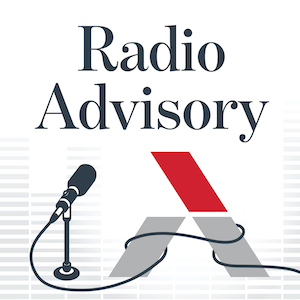Auto logout in seconds.
Continue LogoutMore Americans are now social distancing, self-quarantining, and cutting down on eating out and visiting family and friends than in previous months, largely in response to the omicron variant's spread throughout the United States, according to a recent poll from Axios and Ipsos.
Radio Advisory episode: Omicron—what it means for health care policy
How Americans are responding to omicron
For the poll, Axios and Ipsos surveyed 1,054 adults ages 18 and older from Jan. 7 through Jan. 10.
The poll found that 88% of respondents say they personally know someone who has tested positive for Covid-19. Meanwhile, 36% of fully vaccinated respondents reported either testing positive for Covid-19 or said they think they had the disease but did not receive a positive test after they were fully vaccinated.
Americans are not optimistic about returning to pre-Covid life, with 52% of respondents saying they believe it will either be more than a year before things return to the way they were before the virus, or never at all.
The poll also found that Americans are currently engaging in Covid-19 mitigation measures more than previous months. According to the poll, 57% of respondents said they socially distanced in the last week and 13% said the self-quarantined, the highest rate for either response since April 2021.
Meanwhile, 46% of respondents said they went out to eat in the past week, down from 54% in December 2021 and the lowest since April 2021. In addition, 50% said they visited family and friends the previous week, down from 60% in December 2021 and the lowest rate since March 2021.
"It's 'America retrenches,'" said Cliff Young, president of Ipsos U.S. Public Affairs. "People all of a sudden are being assaulted again by the virus and therefore they're changing. And if they're not, somebody very close to them is."
"The shifts are so significant across the board," said Mallory Newall, Ipsos VP. The shifts represent "a revert back to basically last April when people were bunkering because a majority weren't vaccinated yet." (Schnell, The Hill, 1/11; Talev, Axios, 1/11)
Listen to the recent episode
The omicron variant is continuing to spread rapidly throughout the United States, leading to record numbers of new Covid-19 cases in many areas. In this episode, Christopher Kerns sits down with Advisory Board's Pam Divack to talk about the health care industry implications of the omicron variant, including what the political and policy responses to the variant mean for the health care world.
Don't miss out on the latest Advisory Board insights
Create your free account to access 1 resource, including the latest research and webinars.
Want access without creating an account?
You have 1 free members-only resource remaining this month.
1 free members-only resources remaining
1 free members-only resources remaining
You've reached your limit of free insights
Become a member to access all of Advisory Board's resources, events, and experts
Never miss out on the latest innovative health care content tailored to you.
Benefits include:
You've reached your limit of free insights
Become a member to access all of Advisory Board's resources, events, and experts
Never miss out on the latest innovative health care content tailored to you.
Benefits include:
This content is available through your Curated Research partnership with Advisory Board. Click on ‘view this resource’ to read the full piece
Email ask@advisory.com to learn more
Click on ‘Become a Member’ to learn about the benefits of a Full-Access partnership with Advisory Board
Never miss out on the latest innovative health care content tailored to you.
Benefits Include:
This is for members only. Learn more.
Click on ‘Become a Member’ to learn about the benefits of a Full-Access partnership with Advisory Board
Never miss out on the latest innovative health care content tailored to you.

